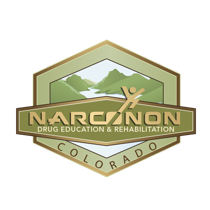Alcohol-Related Deaths in The United States Are More Common Than Opioid-Related Deaths

It’s almost hard to believe that in the United States more people die from an alcohol-related death each year than from an opioid-related death. Because alcohol is legal and so socially acceptable most people don’t view it as toxic or dangerous when in fact it is both. Alcohol use is actually the third leading cause of preventable death in the United States with the first being tobacco use and the second being physical inactivity and poor diet.
After looking at the statistics it becomes apparent that this is a serious issue that needs more attention. While it is certainly true that the record high number of drug overdose deaths needs to be addressed, it has overshadowed the fact that there is another epidemic surrounding alcohol that is receiving little to no attention.
Breaking down the numbers:
- According to the National Institute on Alcohol Abuse and Alcoholism (NIAAA), an estimated 88,000 people die each year from an alcohol-related cause.
- According to the Center for Disease Control (CDC), over 77,000 people died of a drug overdose in 2017. 44,800 of those deaths involved opioids.
- The NIAAA reports that 9,967 people died from an alcohol-impaired driving fatality in 2014.
- The National Highway Traffic Safety Administration (NHTSA) reports that drunk driving kills almost 30 people in the United States every day.
- Between 2007-2017 alcohol-related deaths amongst women rose at an alarming rate of 85%.
So if so many people are dying from alcohol each year why aren’t we talking about this more? While it is important that we address the overwhelming amount of drug overdose deaths, it should also become a priority that we begin addressing the insanely high amount of alcohol-related deaths as well. People often forget that alcohol is a drug. Yes it is socially acceptable to drink and yes it is legal, but it is still a drug none-the-less.
It is common knowledge that drinking alcohol can have a negative impact on one’s health. Alcohol use has several negative side effects on various parts of the body which include but are not limited to:
Pancreas problems:
- Pancreatitis
- Pancreatic cancer
Immune system:
- Weakened immune system
- Increased risks of infections
Mental health problems:
- Increased risk of suicide
- Increased risk of anxiety
- Increased risk of depression
Brain damage:
- Blackouts
- Alcohol dementia
- Memory impairment
- Wernicke–Korsakoff syndrome
Heart problems:
- Stroke
- High blood pressure
- Irregular heartbeat (arrhythmia)
- Heart disease and cardiomyopathy
Liver problems:
- Fibrosis
- Cirrhosis
- Alcohol hepatitis
- Fatty liver (steatosis)
Cancer:
- Liver cancer
- Breast cancer
- Esophageal cancer
- Pharynx (throat) cancer
- Colon and rectal cancer
- Larynx (voice box) cancer
Perhaps one of the reasons that alcohol addiction is considered by some to be less dangerous than heroin addiction is the length of time they each take to kill someone. One shot of heroin can easily take a life while death from alcohol is usually slow and insidious. Yes, a person can quickly die from drunk driving or alcohol poisoning but most alcohol-related deaths happen over a span of several years. Because of this, many people are lulled into a false sense of security about their drinking. Oftentimes people will not realize the damage alcohol has caused to their bodies until it is too late. It is for this very reason that it is so important to learn about the potential side effects of drinking.

While there is a large majority of people out there who are able to drink responsibly, the fact of the matter is it only takes one bad decision made under the influence to ruin a person’s life. Instead of glorifying alcohol use and normalizing binge-drinking it would be helpful if we as a society began to look at alcohol for what it truly is, a toxic substance with the ability to cause irreparable damage.


